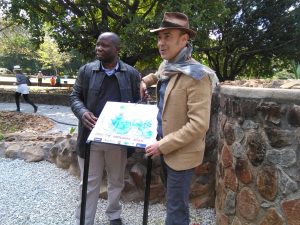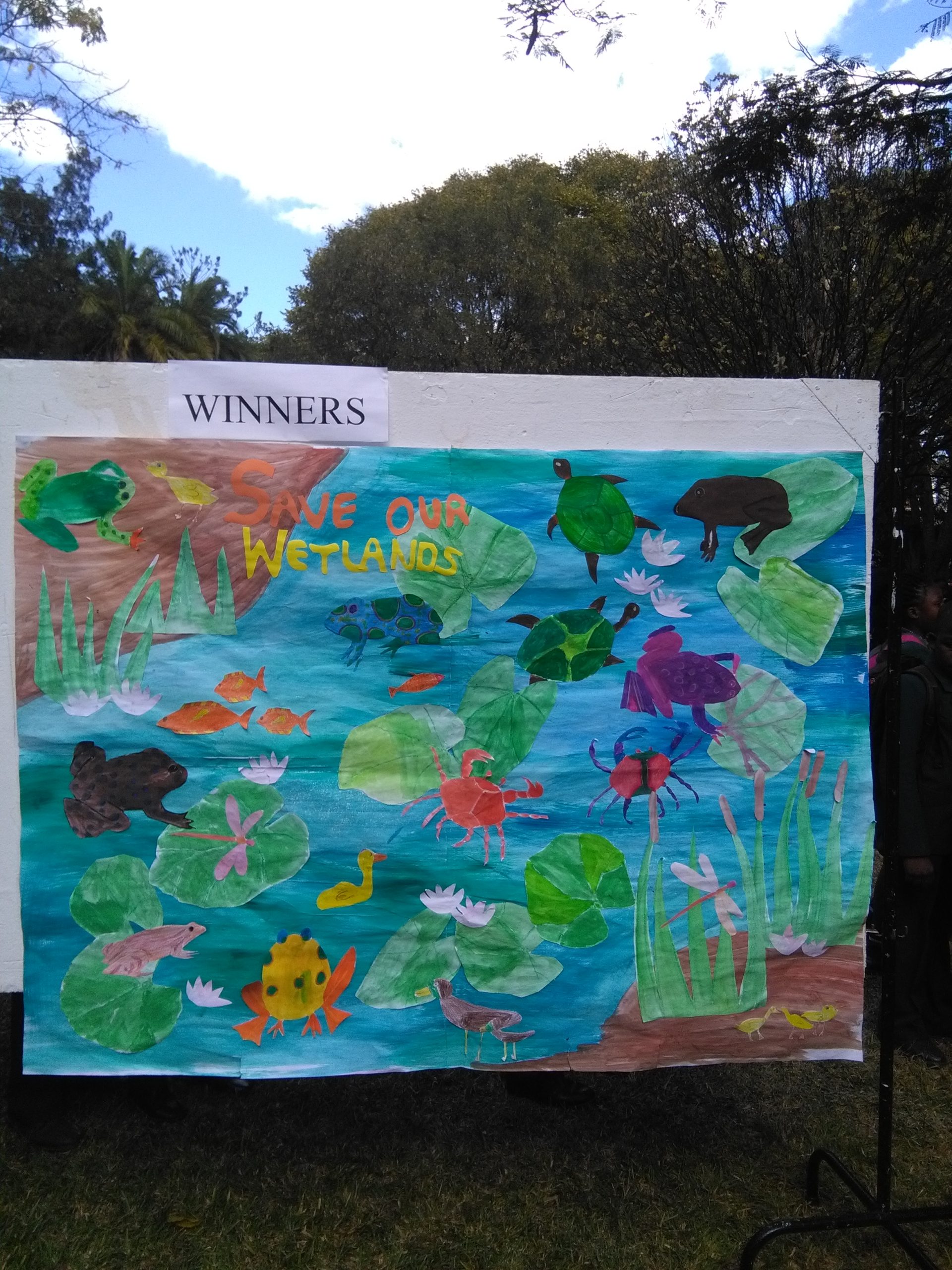By Byron Mutingwende
There is need to scale up awareness programmes on the importance of managing water sensibly, Enrico De Agostini, the Italian Ambassador to Zimbabwe has said.
Agostini made the remarks on Friday 16 June 2017 during the official presentation of a rehabilitated water feature in the Greenwood Park in Harare, which coincided with the grand finale of the Wet-Land-Dry Project launched on World Water Day on 22 March at Town House.

“As we celebrate this year’s plentiful rain, we should not forget to raise awareness of the importance to manage water sensibly. These beautiful works of art are a permanent testimony to that and to the enthusiasm of all the people involved. Well done, zvazoitika!” Agostini said.
Wet-Land-Dry was made possible thanks to the Embassy of the Federal Republic of Germany, the Embassy of Sweden, the European Union, the City of Harare, the United Nations, Educational, Scientific and Cultural Organisation (UNESCO), Miracle Missions, the Meikles Foundation, BirdLife Zimbabwe, Discovereum Children’s Museum Zimbabwe and Enviro Experts Africa. Delotte &Touche, Garden Wise, Gardini&Sons and Rooney’s joined the project at a later stage.
Primary and secondary school children were invited to submit their ideas if how to better preserve the environment and utilise water. The response was overwhelming with over 30 schools, from around Zimbabwe, participating at the level of imagination and inventiveness from children was inspiring. In Greenwodd Park, a wall was created in front of an existing stone garden, which has now been transformed into a dry garden.
The above were a part of a series of events called Ambiente, dedicated to the protection of the environment through art. In 2015, the Waste no Waste, Trash is Treasure event rose awareness about the importance of recycling rubbish and brought beautifully painted rubbish bins to downtown.
The 2016 drive was about the importance to protect birds’ habitats. On all occasions, many hundreds of school children participated with their projects and managed to make a difference to how environmental issues are perceived in Zimbabwe, particularly by schoolchildren.
